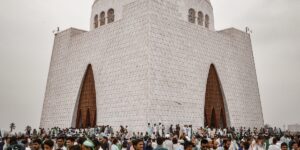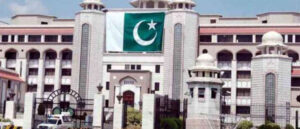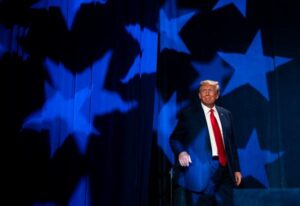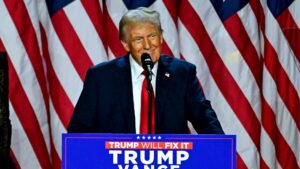Politics of Alliance

The Parliamentary Leader of the Pakistan Peoples Party (PPP) in the Punjab Assembly, Syed Ali Haider Gilani, stated that there has been no discussion on a power-sharing formula with the Pakistan Muslim League (Nawaz) [PML(N)] at the Punjab level. He also mentioned that the dispute between the Governor of Punjab and the provincial government over the appointment of vice-chancellors should not have reached the media. The Governor has a constitutional role, which should have been settled through dialogue.
The Punjab government has been in power for over six months now, and 76% of the same bureaucracy from the caretaker government remains in place. Changing it was deemed unnecessary. Historically, every government has favored bureaucracy over political figures, often ignoring even its own members. Since Bhutto’s era and during Nawaz Sharif’s tenures, there have been complaints that Punjab’s chief ministers often rely heavily on bureaucracy.
Nawaz Sharif joined Muhammad Khan Junejo’s Muslim League, and after Junejo’s dismissal in 1988, he allied with General Zia, forming the PML(N) and eventually becoming Prime Minister through the Islami Jamhoori Ittehad in 1990. However, the Jamaat-e-Islami parted ways, and the PML(N) formed alliances twice with the Muttahida Qaumi Movement (MQM), which eventually withdrew both times due to mutual grievances.
In 2008, the PML(N) joined the PPP government for the first time, but the alliance ended a few months later over the issue of judges’ reinstatement. The PML(N) retained control in Punjab until it was ousted under Governor’s Rule by President Asif Ali Zardari, which was later overturned by the courts. In 2018, Zardari also helped oust the PML(N) government in Balochistan, despite the Charter of Democracy signed between Nawaz Sharif and Benazir Bhutto during Musharraf’s regime in London, which was a mutual necessity for both parties.
From 2014 onwards, the PPP supported the PML(N) government during protests by the Pakistan Tehreek-e-Insaf (PTI) and Pakistan Awami Tehreek, bringing the two parties closer. In 2018, the founding leader of PTI, after becoming Prime Minister, took severe retaliatory actions against PML(N) and PPP leaders, surpassing even Musharraf’s approach, which led both parties to unite. In April 2022, they, along with the Pakistan Democratic Movement (PDM), ousted Imran Khan through a vote of no-confidence and formed a government, which lasted 16 months under Prime Minister Shahbaz Sharif, with MQM and Jamiat Ulema-e-Islam (JUI) also part of the coalition.
In the February 2024 elections, the PML(N) and PPP jointly formed a federal government, with Shahbaz Sharif as Prime Minister for the second time and Asif Zardari as President for the second time as well. However, the PPP did not join the federal government, though harmony between the PML(N) and PPP exists at the Punjab level. The Governor, appointed from the PPP, occasionally clashed with the Punjab government, such as over the appointment of vice-chancellors, which was eventually resolved with concerted efforts from both sides.
In Sindh, the Prime Minister retained the MQM’s Governor, who has not had any conflicts with the provincial government, unlike Punjab. Nevertheless, the MQM is not satisfied with the federal government. Mustafa Kamal, a leader of MQM, has expressed concerns that the federal government is neglecting MQM, the fourth-largest party. MQM has reservations about the 50-year-old quota system in Sindh, which was introduced by Bhutto for ten years but remains in place.
The MQM leadership claims that after the February 8 elections, they supported PML(N) without any conditions, but now feel that PML(N)’s behavior is unfair and unresponsive to their issues, raising doubts about staying in the government. Last month, the hurried and late-night approval of proposed constitutional amendments has also drawn complaints from coalition partners who feel PML(N) does not consult or involve them.
Historically, PML(N)’s allies have had similar complaints, including Maulana Fazlur Rahman, who now also feels increasingly distanced and aggrieved by the PML(N) leadership. Despite these issues, the coalition government continues to function successfully. This suggests that media reports of discord between PPP and PML(N) are part of routine affairs.








